Backroads and Ballplayers #15
Stories of the famous and not-so-famous men and women from the days when baseball was "Arkansas' Game." Always free and always short enough to finish in one cup of coffee.
Book Event Update, Buck O’Neil, and Legend of The Claybrook Tigers

We had a great morning yesterday at the “World Famous” (almost) Petit Jean Coffeehouse. Although we were greeted by one of Arkansas’ daily thunderstorms, we enjoyed a special morning with new and old friends.
Petit Jean Coffeehouse is one of our favorite lunch/breakfast spots. During our Saturday morning visit, we saw dozens of folks who passed by their neighborhood coffee shops to make PJC a destination rather than a breakfast stop. If you were unable to attend our book signing yesterday, the coffeehouse has signed books in their mercantile shop.
Current “book tour” schedule:
July 17, Yell County Historical Society, 7:00 PM. - Presentation “When Baseball was Arkansas Game” - Methodist Church Family Activity Center at 119 Locust Street in Dardanelle. Everyone is invited!! Guests Welcome
July 22, 9:30 AM - 11:00 AM - Book Signing Newton’s Pharmacy
July 24, 7:00 PM White County Historical Society. Presentation “When Baseball was Arkansas Game” - Carmichael Community Center at 801 S. Elm in Searcy and GUESTS ARE WELCOME
Buck O’Neil: “I was born just in time.”
Someone asked me a while back, “What is your favorite baseball book?” Lately, the answer would be whatever Joe Posnanski book I am currently reading. This week I am reading The Soul of BASEBALL, chronicling Posnanski’s travels with Buck O’Neil. Before that, it was Baseball’s Top 100.” Posnanski writes in essay style, which means each chapter stands alone just in case life gets in the way of your reading for a week or so.
Buck O’Neil is a baseball paragon and the unofficial ambassador of the historic Negro Leagues that flourished in America from 1920 until about 1960. Buck played and managed in that colorful era, and he helped found the Negro League Museum in Kansas City, Missouri. One question that Buck was asked almost every day was how he felt about being born before men of color had the opportunity to play major league baseball. Buck’s always-ready answer was, “I wasn't born too early. I was born right on time." Buck O’Neil was inducted into the Baseball Hall of Fame in 2022.
The lost story of Arkansas’ Claybrook Tigers
Down a dusty Arkansas Delta road that only farmers travel, and just past the unmarked location of a long-abandoned town, today’s travelers unknowingly pass the site of a historic baseball park that sadly disappeared years ago.
Thousands of fans once made the excursion from the larger cities by train or came from local farming villages to see the Claybrook Tigers play. Their opponents came from cities like Little Rock and Memphis, and from as far away as Cuba.
There is no historical marker on Simsboro Road, about 10 miles northeast of Hughes, Arkansas, although some of the most noteworthy minor league baseball games in our state’s history were played there. Today, only the legend of the Claybrook Tigers remains.
The community, once called Topaz, was renamed Claybrook after the African-American entrepreneur who transformed a cotton field into a thriving timber business, hiring dozens of locals, and entertaining the society crowd from Memphis on weekends. In its heyday, the boomtown of Claybrook, Arkansas, featured a boarding house, a sawmill, a general store, a dance hall, and a championship-level professional baseball team.
John C. Claybrook arrived in Crittenden County, Arkansas, about 1905. He was in his early 30s, and although he had little formal education, he was destined to become one of the most respected businessmen of his time. Shrewd and determined, Claybrook reportedly could not read nor write, but he could do business calculations in his head faster than his associates could calculate the transaction.
Upon his arrival in the Delta, Claybrook saw other farmers clearing native timber to make room for cotton. Claybrook had an idea. In addition to his modest farming operation, he would contract for the removal of the virgin cypress, oak, and hickory and process it into lumber at his sawmill. His lumber business thrived, and by the early 1930s, his original two-acre farm had grown to more than 1,200 acres. John Claybrook had become one of the wealthiest and most respected Black businessmen in the region, but his affection for the hard work it took to reach that status was not easily passed on to his family.
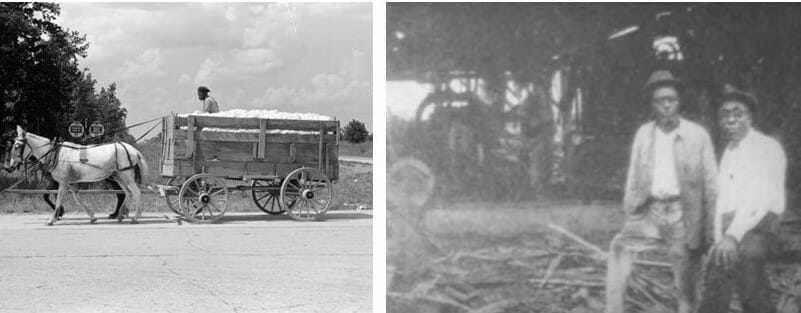
Claybrook’s daughter, who left the farm to become a schoolteacher in Memphis, recalled that life on the plantation came with a demanding schedule. Weekends were often spent entertaining the Memphis and Little Rock society crowd that had arrived by train for a good time. Monday morning began at sunrise back at the sawmill or the cotton field and continued until darkness ended the workday. The routine was part of the philosophy the elder Claybrook lived by, but it was a difficult lifestyle for his children. The least satisfied of his family was his teenage son.
John Claybrook Jr was born in 1916, but despite growing up in a somewhat privileged home, plantation life was not for him. Young John loved sports, and his father hoped that sponsoring a local baseball team might keep his son down on the farm. That team would become the Claybrook Tigers. While town teams were the norm in the South in those days, an obscure sawmill town with a professional team good enough to challenge the best baseball teams in the region was a historic exception.
An association that offered regulated professional baseball opportunities to men of color had been created in 1920 and became known as the Negro Leagues. The young men drawn to the newly created teams had big-league skills, but before the formation of the new organization, they were restricted to barnstorming against local town teams. The Claybrook Tigers played in the Negro Leagues’ somewhat informal minor leagues. These leagues seldom played a standard regular-season schedule, but often met in a post-season championship series.
According to the Arkansas Baseball Encyclopedia, the Tigers began with a modest schedule in 1932, and as the quality of players John Claybrook recruited improved, the team challenged the best teams the Negro Leagues had to offer. Claybrook built an impressive ballpark for his team and began to recruit some of the top Black baseball players in the South. By 1935, he had put together a championship-level team.
He did not have to look far to find some of his top players. Switch hitter Alfred “Greyhound” Saylor was from Blytheville, Arkansas, and ace pitcher Theolic, “Fireball” Smith was born in Wabbaseka. The Tigers’ first baseman Bill “Wing” Ball grew up in Little Rock. Ball had no lower right arm but was an excellent defensive first baseman and a local favorite.
In September 1935, the Claybrook Tigers defeated the Memphis Red Sox four games to three in playoff series to claim the 1935 Negro Southern League title. The Memphis Commercial Appeal gave the championship series about 50 words on page 11. The story, under the small headline, “Claybrook is Crowned,” noted that Theolic Smith struck out eight in the 5–2 win.
Despite the 1935 post-season success, there were some troublesome issues in Claybrook. If the number one goal of John Claybrook Sr. was to entertain his son that part of the plan was in danger.
In the spring of 1936, nationally-known newspaper columnist Ernie Pyle made a trip to Claybrook. Pyle, who would later lose his life covering World War II, was traveling the country writing a syndicated column called “Life Goes On.” In his column about his visit with John Claybrook Sr., Pyle noted the importance of the father’s plan to use the baseball team to keep his son in the Delta. Pyle gave hope that John Sr. would get his wish, but the restless young man would soon leave the farm life behind.
John Claybrook Sr. decided to make an aggressive change in the Tigers based on the 1935 success. He brought in a big-name player-manager called “Double Duty” Radcliffe. Theodore Roosevelt Radcliffe earned his nickname by regularly pitching one game of a doubleheader and catching the next. As part of Radcliffe’s deal to come to Claybrook, he lived with the Claybrook family and received a large share of the gate receipts.
The team’s success and the extra expense of Double Duty’s paycheck led to more games in Memphis at the more spacious Russwood Park. In order to increase revenue, the Tigers played most of their big-name opponents in Memphis in 1936, with less than six games actually played in Claybrook.
By the end of the 1936 campaign, Radcliffe and Claybrook were at odds over Double Duty’s share of the gate, and a disappointed father realized that his son was never going to be satisfied in the Arkansas Delta. There is no record that the Claybrook Tigers played after 1936. Radcliffe left for Cincinnati with most of the better players, and John Claybrook Jr. moved on to the city life he preferred. By the early 1940s, John C. Claybrook had sold his Arkansas operation and moved to his alternate home in Memphis. He passed away in 1951.
The 1935 Claybrook Tigers were champions of a league known as the Negro Southern League. Fifteen years prior to the Tigers’ title, the Little Rock Travelers won a pennant in a segregated minor league called the Southern Association. The 1920 Travs are the subject of dozens of feature stories, but the history of the Claybrook Tigers was generally forgotten until two Arkansas historians set about to honor the team’s accomplishments.
Caleb Hardwick’s work in the Arkansas Baseball Encyclopedia contains the most complete research available on the Negro League Era’s history in Arkansas. Among the teams, leagues, and ballparks included in the online publication is a look back at the Claybrook Tigers.
In 2001, David D. Dawson of the University of Arkansas produced a documentary on the Claybrook Tigers called Swingin’ Timber. Dawson drew from extensive research and the photo collection of Dr. John R. Haddock of the University of Memphis to create the definitive tribute to one of the most important teams in Arkansas baseball history. Watch Swingin’ Timber courtesy of Dave Dawson.
Claybrook photos courtesy of David Dawson, the John R. Haddock Collection, and the Arkansas Baseball Encyclopedia.
Have you missed a previous post? Click here.
Ordering information for books by Jim Yeager. Click Here





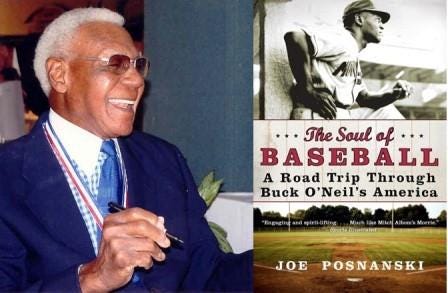
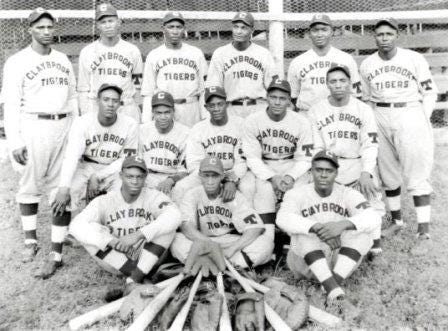
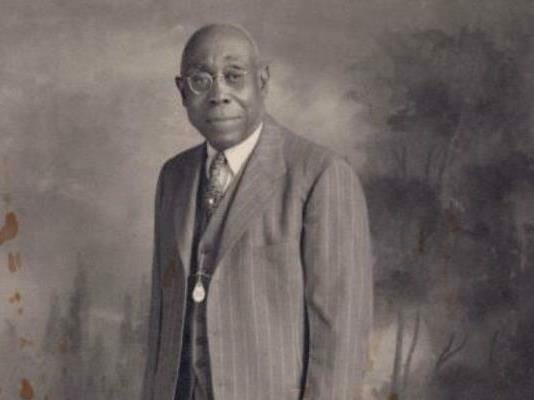
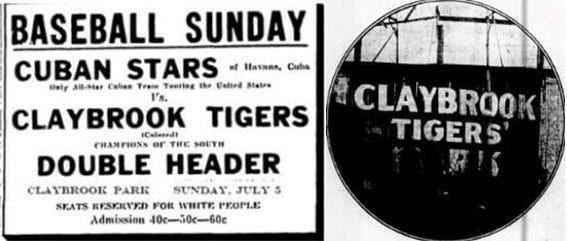


Great stuff, Jim! I didn't know anything about this team.